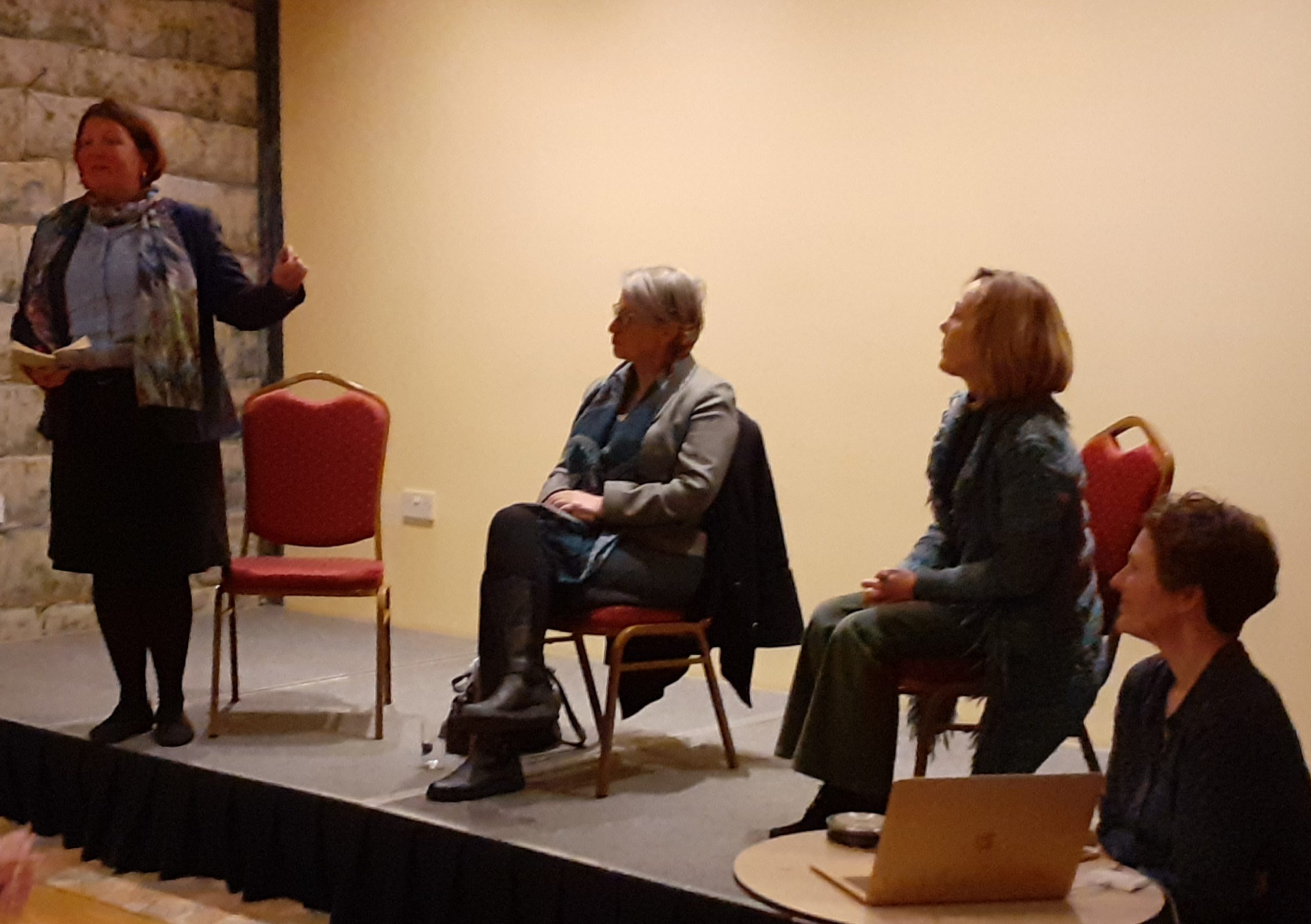Herefordshire needs to think strategically about its direction around food production if the county is todevelop resilience to local and global challenges.
‘Diversity is the key to healthy systems,’ said agronomist and peer Natalie Bennett, last week in Kington as Herefordshire Greens celebrate their 40thanniversary with a discussion around agriculture and the state of county rivers.
Calling for smaller and more varied crops, Baroness Bennett said: ‘More than 50% of human calories come from just four crops, that is bad for public health and bad for food security.’
‘What we are seeing with our food systems is not what farmers want, it is what they have been pushed into. We need policy framework and incentives to make this work. We have to have a system that looks after the environment, gives people food and gives farmers an income. We know how to do this.’
Ellie Chowns, Green Party councillor with Herefordshire’s Economy and Environment portfolio, said: ‘Chemicals and fuel cost a lot of money. What we are doing in Herefordshire is trying make economy and environment work together. We have examples of a fabulous generation of farmers in Herefordshire, like Regen Ben from Ross-on-Wye and Richard Thomas farming at Risbury Court, who are looking to regenerative farming to get off the treadmill of debt and create food systems where people and planet can thrive together.’
Coun Chowns said: ‘Cheap food is costing us the earth and our health, but we also need to make sure food producers have an income. We need regulations that clarify things for everyone, and that work well. We need to create a level playing field – this requires systemic change. We need to build a vision of how farming and our food economy can be different.’
Planning consultant Helen Hamilton has been fighting on behalf of many communities for all consequences of intensive agriculture, particularly poultry, to be taken into account. She said one of the ‘unintended consequences’ of developing anaerobic digesters alongside poultry units for the English Wye catchment’s 20 million chickens was the 289% increase in maize production in Herefordshire between 2016 and 2020 to facilitate manure management. Environment Agency records for the period also show a 32% decrease in permanent grassland and a 10% decrease in tree, shrub and hedgerow cover over the four year period.
‘Driven by subsidies, this policy has led to an enormous loss of biodiversity and increase in flood risk to meet just one industry’s needs, and is undoubtedly contributing to the ecological failure of the Wye’, said Ms Hamilton.




